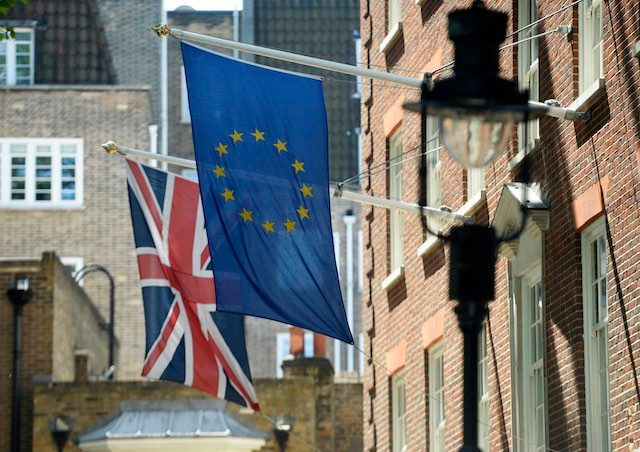SUMMARY
This is AI generated summarization, which may have errors. For context, always refer to the full article.

BRUSSELS, Belgium (UPDATED) – The EU will unveil plans on Tuesday, February 2, for key changes in Britain’s membership, including a “red card” system for parliaments to block laws made by Brussels, in a bid to prevent it becoming the first country to leave the bloc.
European Council President Donald Tusk is due to make a formal announcement around 1100 GMT after intensive talks between British and EU officials, including a meeting with Prime Minister David Cameron at the weekend, to avoid a so-called “Brexit.”
Cameron insists he must get satisfaction on four key areas, including the key stumbling bloc of curbing welfare benefits for EU citizens working in Britain, if he is to back continued membership in a referendum promised by the end of 2017.
The other three demands – safeguards for non-eurozone countries, greater EU economic competitiveness and opting out of ever closer union – are said to be easier to resolve but France especially has just raised fresh concerns over the future of the single currency.
Both Tusk and Cameron have trumpeted “progress” in the talks but the EU president, who is keen to avoid a so-called “Brexit,” warned there were still “outstanding issues” to resolve.
The Tusk package also does not mean a deal is done – Cameron will have to persuade his 27 EU peers to back the reform proposals at a summit in Brussels on February 18-19.
If he secures their agreement – and that is not certain – he will then campaign for Britain to remain in the EU in an in-out referendum likely to be held in June.
London’s bid to transform its EU membership has added to the turmoil as the bloc struggles with the biggest influx of migrants since World War II and the fallout from the eurozone debt crisis.
‘Red card’ system
London was positive on the outcome after winning the key concession to give national parliaments increased powers to challenge Brussels.
A source in Cameron’s Downing Street office said “progress has been made”.
“A period of intense negotiation will then begin with all the other member states with the aim of securing their support for all the ambitious proposals.”
Tusk’s draft contained a “red card” system that would allow a group of 55% of the EU’s national parliaments to stop or change EU laws, which was one of Cameron’s goals, the source said.
The current “yellow card” system – using a term taken from football disciplinary infractions – only allows parliaments to demand an explanation of laws from Brussels.
British eurosceptics were unconvinced, with UKIP head Nigel Farage dismissing it as “frankly ludicrous” and no change on the current situation.
London also hailed progress on the most difficult issue, of restrictions on welfare benefits, which eastern European member states such as Poland have most misgivings about given the number of their national working in Britain.
Cameron’s office has hailed as “substantial” the European Commission’s offer of a so-called “welfare brake” that would allow London to exclude EU migrants from benefits, such as income top-ups for low-paid workers, if it can show its welfare system is under threat.
Reports from Warsaw said Cameron will hold talks there Friday with Polish leaders aiming to win them over to the changes.
Central Europe concerns
The so-called Visegrad Four – the central European states of Poland, the Czech Republic, Hungary and Slovakia – say they will not accept any plan that discriminates against hundreds of thousands of their citizens working in Britain.
France meanwhile has set a red line by warning London that it would block the proposal on protection for non-euro countries if it went too far.
Although Cameron has set a deadline of end-2017 to hold the referendum and insists he is in “no hurry” for a deal, sources have said he is keen to push a vote through by June.
British media reported Monday that June 23 was the most likely date.
That would avoid any new flare-up in Europe’s migration crisis this summer and before British eurosceptics, particularly in Cameron’s own Conservative Party, become even more unruly.
The following EU summit is in March but that would likely be too late to arrange a June referendum, with the next feasible date in the British electoral calendar coming in September.
Opinion polls are largely split on whether Britons would vote to leave the EU.
It will be the British public’s first vote on the country’s EU membership since 1975, two years after it joined what was then the European Economic Community. – Danny Kemp, AFP / Rappler.com
Add a comment
How does this make you feel?
There are no comments yet. Add your comment to start the conversation.